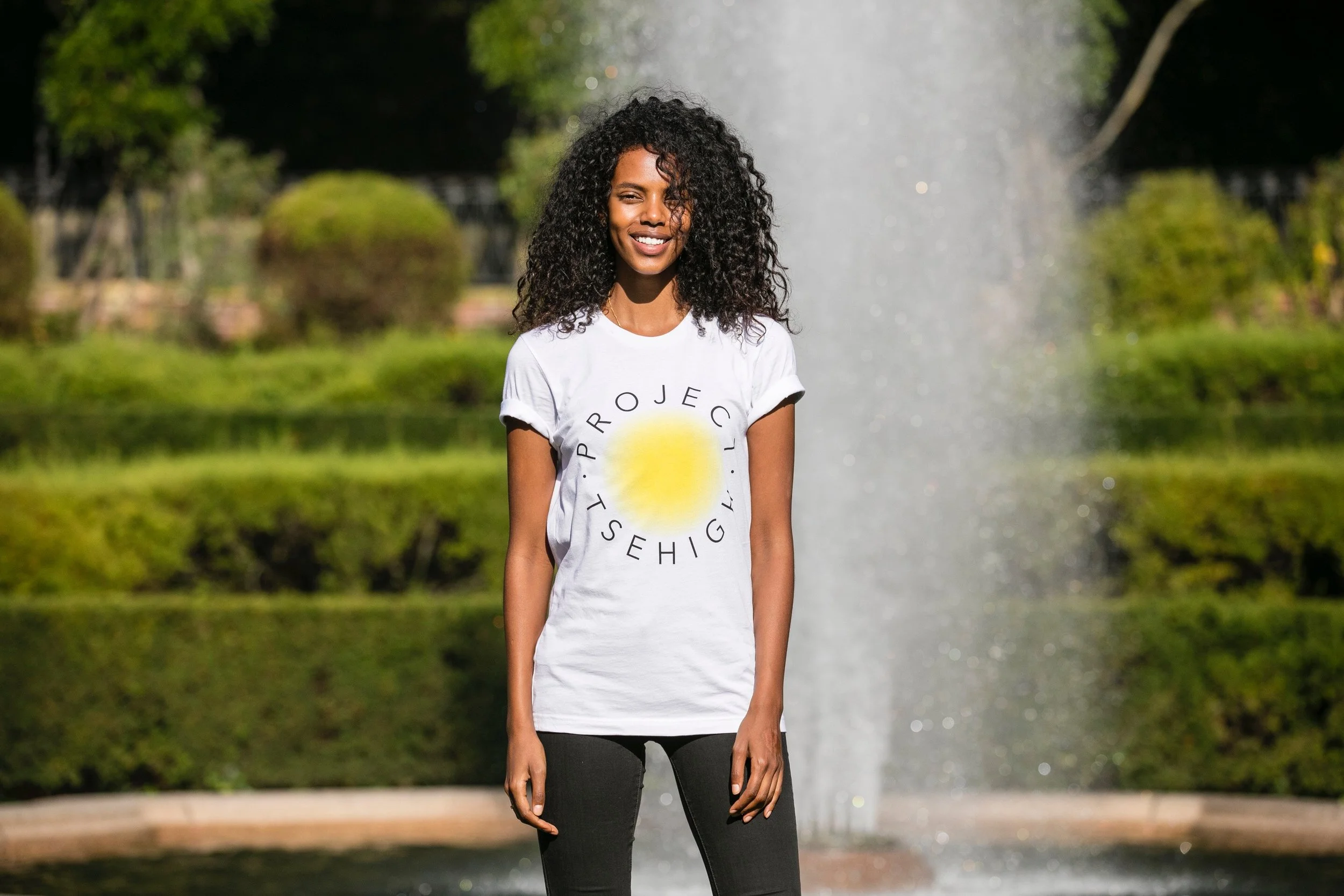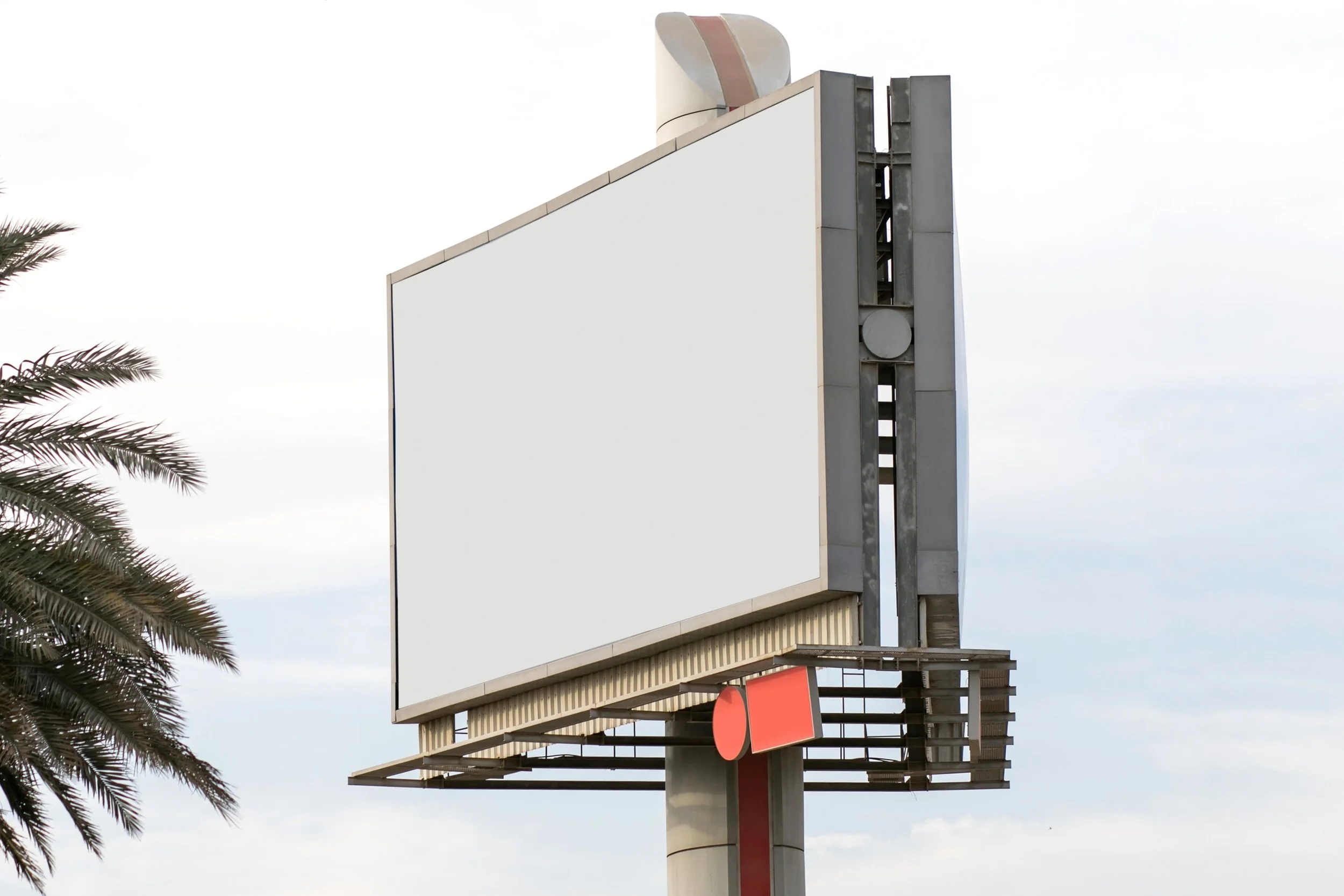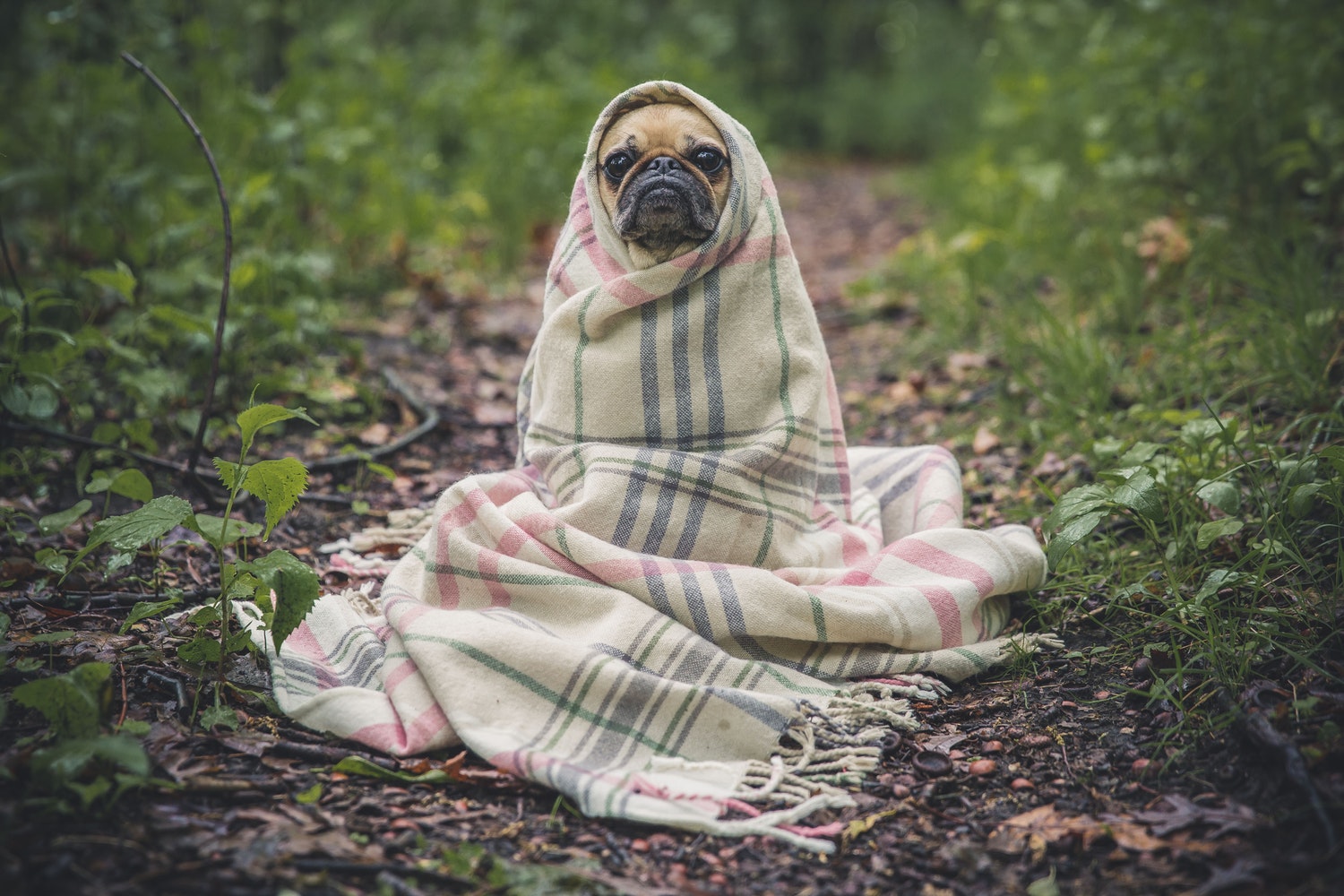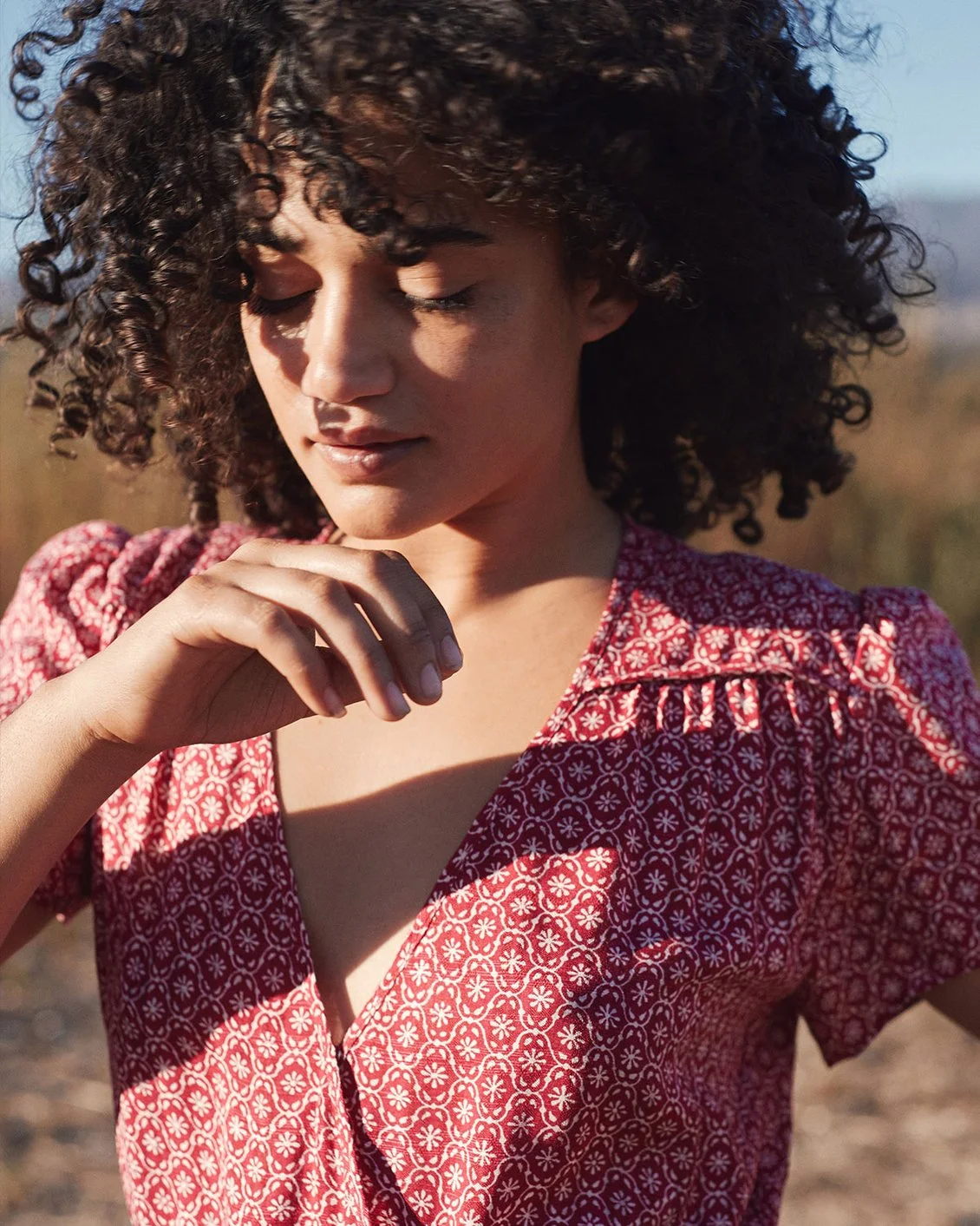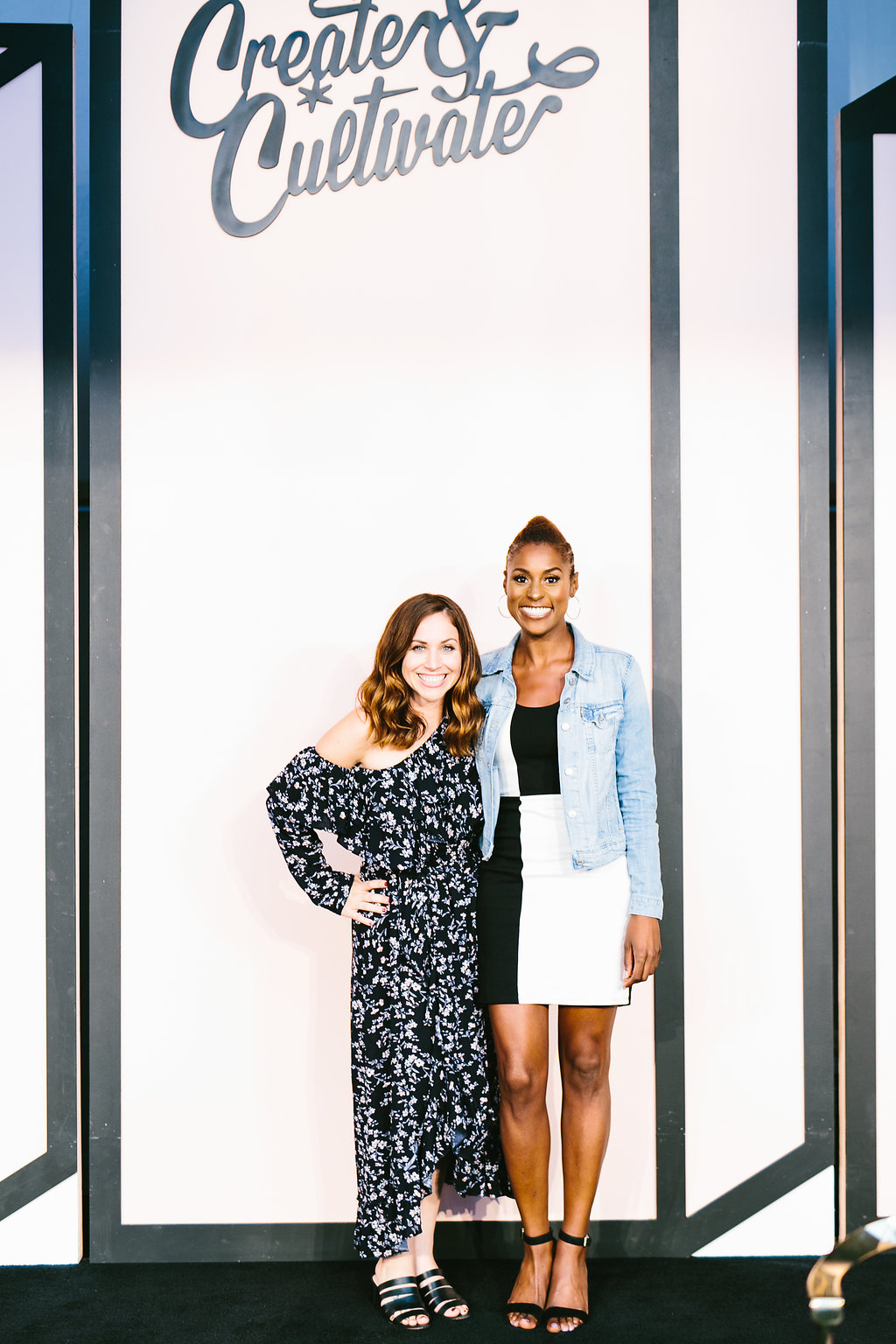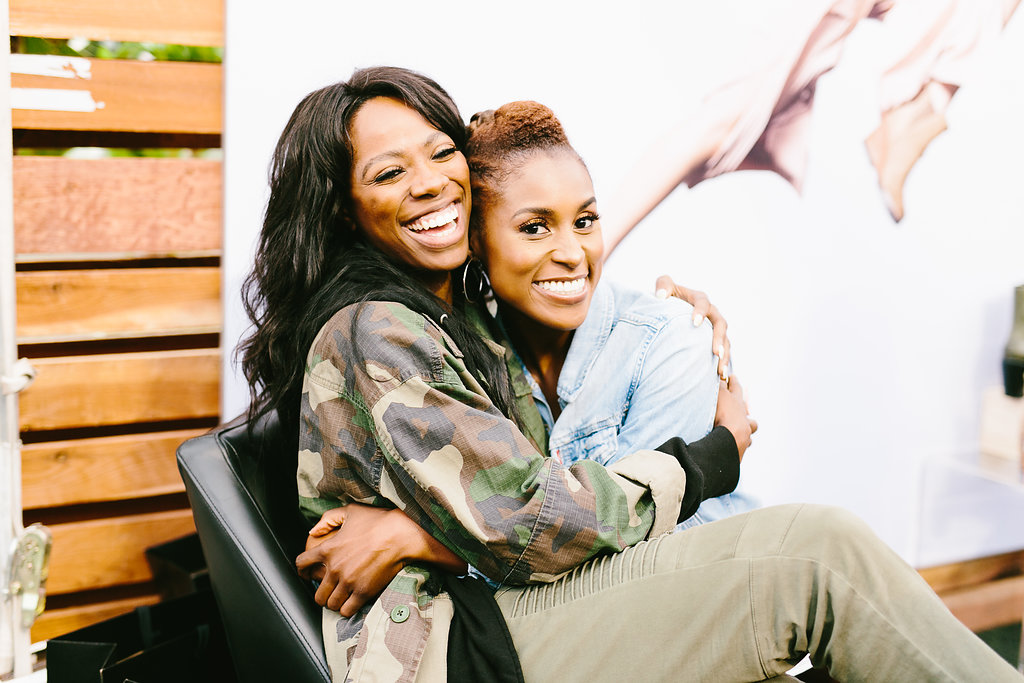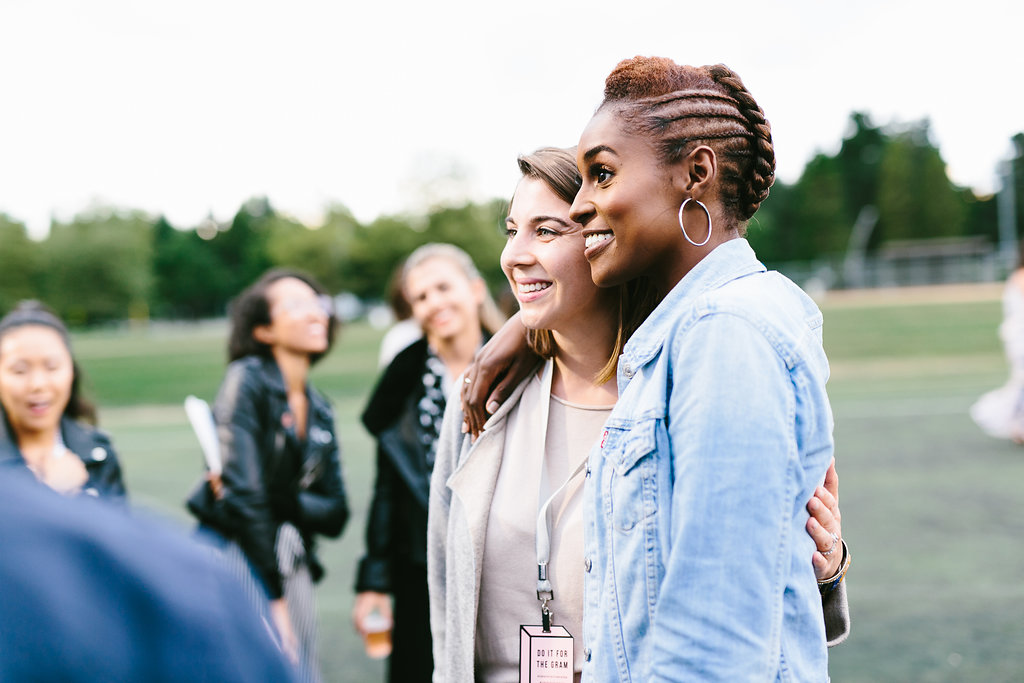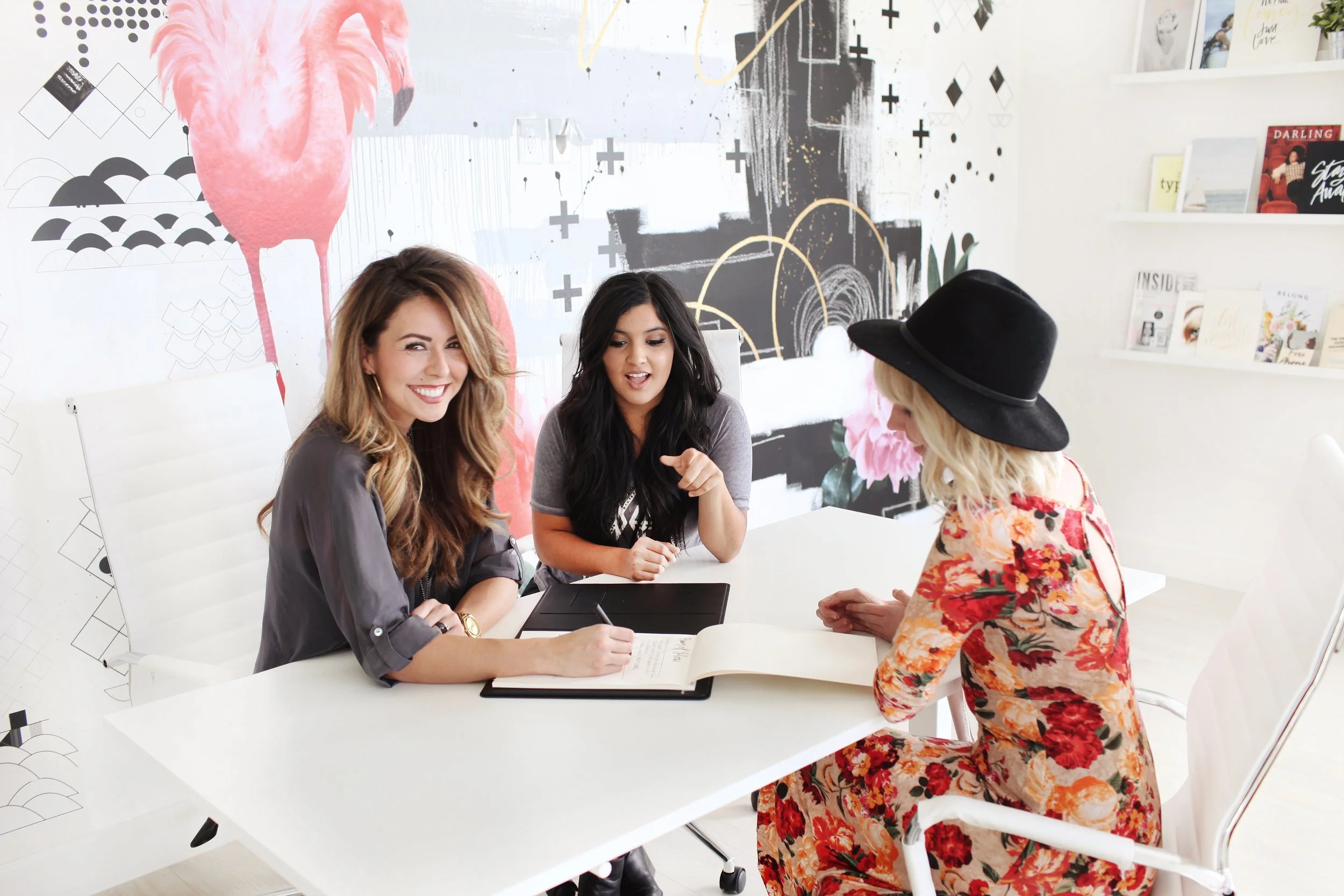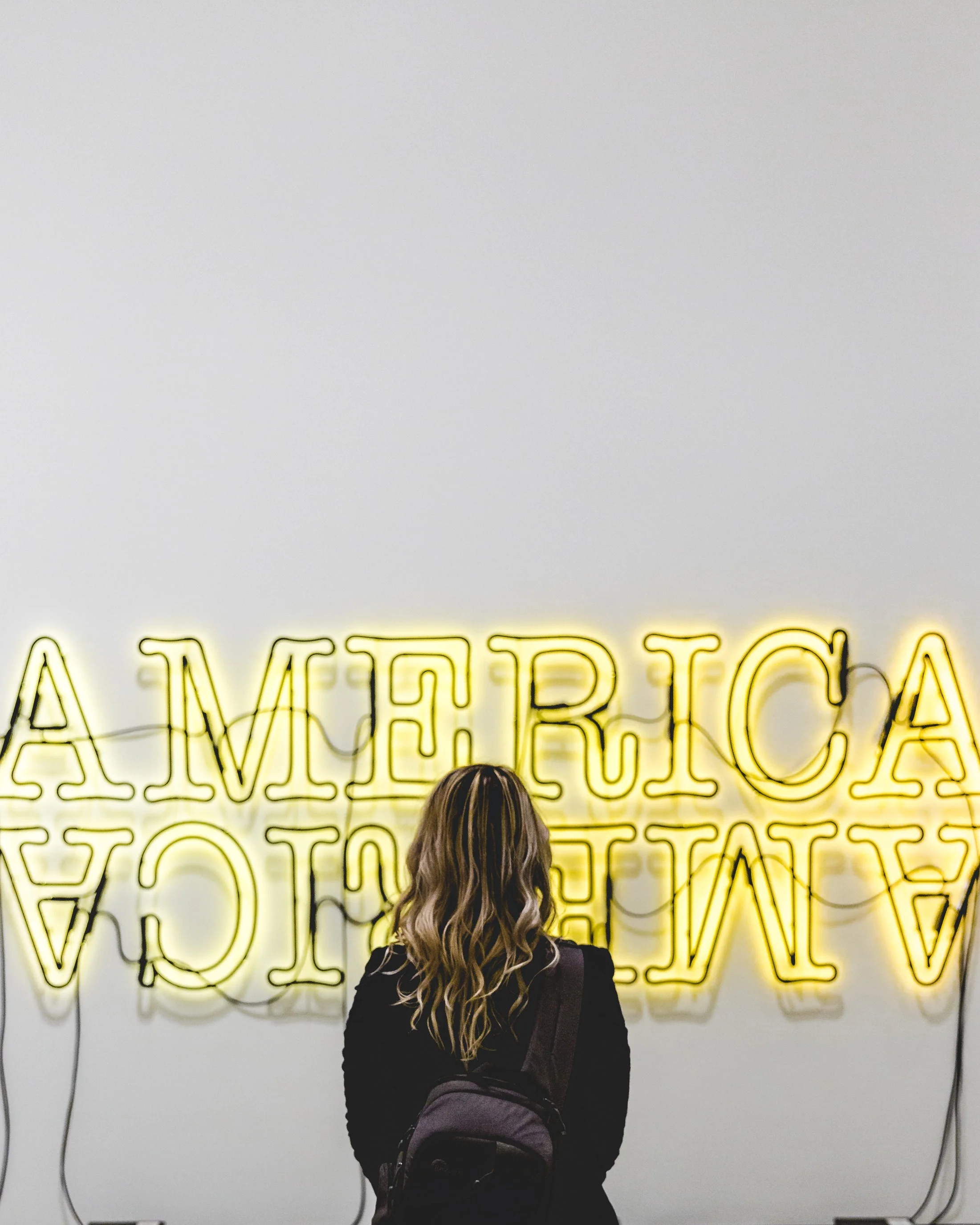Your Mom Thinks You Should Quit
You Are a Walking Billboard (And That's A Good Thing)
What If We Had a Solution to the High Cost of College
Stars of The Teachers Talk Writing Process & Working with Friends
The Most Interesting Interview Questions You Need to Know
This Is Us Through the Week
Why LA-Based Christy Dawn Is About So Much More Than Cool Dresses
Slay Your 2018: Getting Back on the Grind
Take the Leap: 5 Reasons to Start Before You're "Ready"
6 Texts Responses to Your Boss That Are Too Passive Aggressive
Let's Talk About Love Language in the Creative Workplace
Professional Ghosting: Why Is It So Horrible
Issa Rae on Failure, The Old Hollywood Boys Club & Throwing Chairs
When Issa Rae joined us on stage at Create & Cultivate Seattle as keynote conversation with CEO founder Jaclyn Johnson there was a fair amount of fan-girling that went on. Which, fair. The self-made YouTube star has made moves since Awkward Black Girl, creating and starring in HBO's Insecure, as well as landing in Time Magazine's "Firsts" issue, credited as the "First black woman to create and star in a premium cable series."
Here's what she shared with the audience.
On the old boys club:
"You’re constantly getting excuses from higher-ups that they can’t find people.. But they’re not trying hard enough.
Sometimes you have to take a risk on people that have no experience, so they can work. There is an old boys club at the end of the day. They’re recycling people and they are risk-averse. But when you have black and Latino people supporting a black show, the results are clear and it feels authentic. For us it was making sure that we’re doing our part to give other people the spotlight."
On your ‘one shot':
"During Awkward Black Girl... I was producing that out of pocket, and my pockets were empty. That was hard. I produced it with 25 dollars. We set a Kickstarter goal of 30k and ended up raising 60k. And then Pharrell [Williams] contacted us in the middle of our season and asked if he could fund the second season. That changed the game from there."
Shonda Rhimes and co ended up reaching out to Issa.
"I was producing Awkward Black Girl out of pocket. And my pockets were empty."
Tweet this.
"I pitched them a show called I Hate LA Dudes. It was something true to my heart and true to their hearts too. I developed that with them. I felt like it was my one shot. I was extremely eager to please. Shonda was great at hand-holding but where I fell short was navigating network notes. When the studio and network would give notes I was a 'yes woman' and I lost what I was trying to say in the process. At the end of the day they want you to funnel their notes through your voice. I didn’t get that at the time. They ended up passing on the series. I thought that was my one shot. So when HBO called and I knew that I should never dilute my voice again."
On failure:
"I can’t go a day without failing. I think where I thrive is knowing I’m not gonna make that mistake the same way again."
On bringing up other people:
"Too often we try to find people that are established or go the star route and networks encourage that. But I’d been following Yvonne’s [Orji] career for such a long time, just via Facebook. She was one of the random people I had friended post election when she had posted a video trying to claim Obama as a family member after the election. I thought it was the funniest shit ever. I just friended her. When we got picked up I hit her up and said, ‘Hey will you audition for this?’
The web is where you can be the most free. It’s your pure unfiltered voice. And it’s where you can highlight other content creators. Which is what Issa Rae Productions is about. It’s about building a pipeline to get people into television and film. It’s been super exciting as a genuine fan of dope artists.
Everyone on the Insecure team is all about that. Elevating other content creators. That’s what it’s going to take to shift the industry and shift the crazy excuses as to why there aren’t relatable shows of color."
On first mini-viral moments:
"Me and my girlfriends were sitting around drinking Moscato one night. Because we heard Lil' Kim talk about it in a song. And we could afford it. We had a freestyle session where I thought, I need to record this. We are killing it. We weren’t. I used Windows Movie Maker and turned it into a music video. It spread around our campus."
On breaking into the industry:
"At the same time [as the viral videos] I was trying to break into the industry traditionally. I came to LA to try and sell a spec script I wrote with a partner. I was told by executives that there was no audience for the kind of work we we’re trying to do. I had a lightbulb moment when I thought I am such an avid user of Facebook, it would be so cool to do a mocumentary about what it’s like to be black at Stanford and just upload it. And did it. It started spreading to other schools. For me that was an epiphany that I had direct access to an audience. But I graduated and didn’t do it again until about two years later. Awkward Black Girl was my third web series. It blew up from there."
On being ‘Insecure’
For Awkward Black Girl I was 100% nervous. I had never put my own face out there. I wanted another friend to star in it, but by the time I actually went through with it she was like, ‘Girl I’m in law school.’ I knew I was running out of time. And I knew the character and that I could play it. That took a lot of pumping up. I know how ruthless people are, but I had to get over it. I had my best friend come over and showed her the first edit and watched her genuine feedback and laughter. Then I closed my eyes, uploaded it, and went to sleep. By the time I woke up, it had spread beyond my network, which I thought was just incredible."
"I can’t go a day without failing."
Tweet this.
On representation:
"I was a fan of television shows that had a specific type of humor. But I never saw people of color representing that humor. Sometimes they were being laughed at or the butt of the joke, but they weren’t cracking the jokes."
At the time Issa had a film blog where she would vent her frustrations.
"On the blog I would talk about what I wanted to see. And I would talk shit a lot. And one commenter was like, ‘Bitch you talk a lot of shit, why don’t you do it?’ And I was like, 'Oh maybe I can.' So I really created Awkward Black Girl so I could continue to talk shit."
On the start of her career:
"There is someone who should have equity and is the reason I put out the show. Commenter ShyWeb18 is responsible for my entire career. Shoutout to her."
On female friendships:
"When I was in in college I loved watched the reality shows for the drama and the ignorance and the ridiculousness of it. But then I thought this is all we have depicting black female friends. We’re constantly battling each other, we’re conniving. We’re throwing chairs and wine bottles at each other. And I’ve never thrown chairs in my life.. at my friends. We wouldn’t be friends after that. I wanted to depict the real friendships that I knew. Yvonne’s character Molly is based off of one of my best friends.
I love women. Some of my best friends are women. There’s just a comfort and a shorthand and a support system. For me it comes from being around dope active women. There’s a narrative that we don’t support each other, that we’re catty, that we tear each other down. That’s never been my experience. It’s so rewarding to grow with so many different women. "
Photo credit: Smith House Photography
Arianna Schioldager is editor-in-chief at Create & Cultivate. You can find her @ariannawrotethis.


